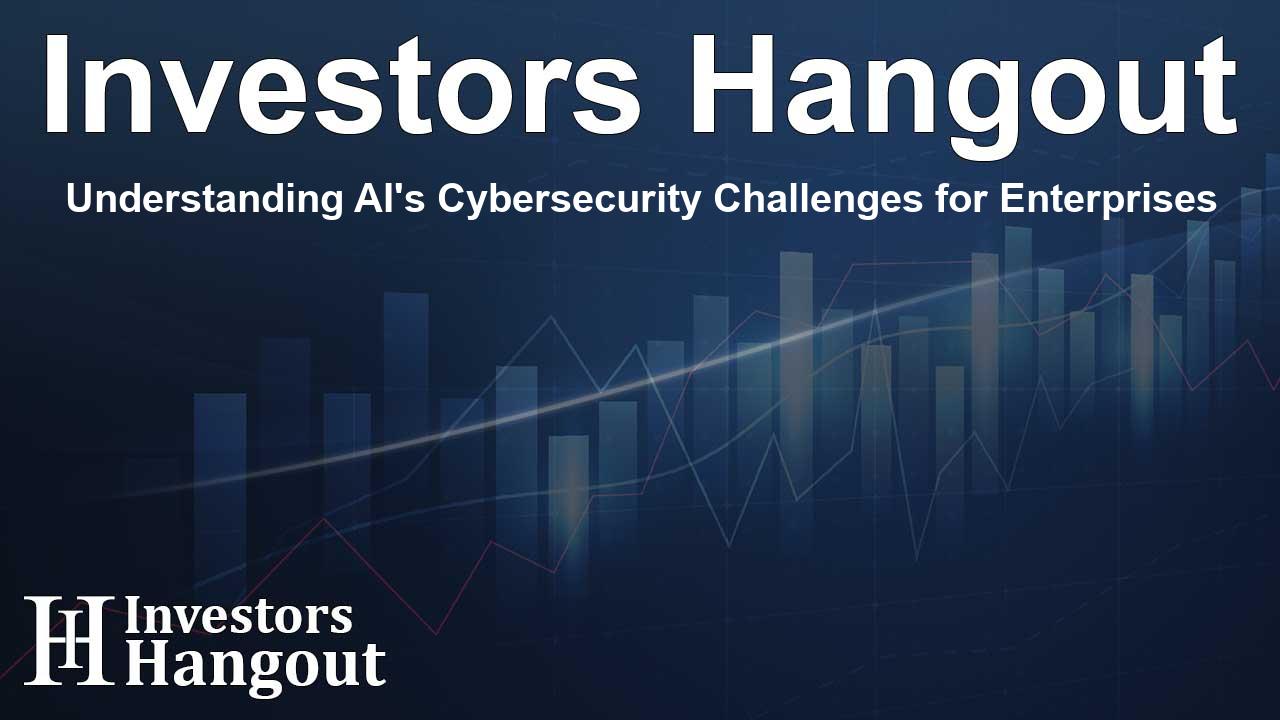Understanding AI's Cybersecurity Challenges for Enterprises

New Insights on AI and Cybersecurity Challenges
The 2024 State of AI Infrastructure Report highlights significant concerns regarding cybersecurity risks among enterprise IT leaders. Nearly half of IT teams report difficulty in safeguarding AI applications and workloads.
Survey Insights Reflect Growing Concerns
Flexential, a leading provider of data center solutions, conducted a survey that included 350 IT leaders from organizations with annual revenues exceeding $100 million. This survey revealed a growing apprehension over the cybersecurity implications tied to AI investments, particularly as AI technologies continue to integrate into various business processes.
Challenges of Protecting AI Deployments
The findings emphasize the necessity for businesses to tackle an array of cybersecurity and data protection challenges to achieve their AI goals. Flexential indicates a pressing need for proactive disaster recovery planning and an emphasis on resilient infrastructure design, which are essential to ensure secure and effective AI implementations.
The Vulnerabilities Associated with AI Investments
According to the survey results, an overwhelming 95% of IT leaders acknowledge that increased investments in AI have amplified their vulnerability to cyberattacks. Alarmingly, 40% indicated that their cybersecurity teams lack the understanding required to adequately protect AI-driven applications and workloads.
Shifts Away from Public Cloud
Furthermore, approximately 42% of organizations have strategically moved their AI applications from public cloud environments to colocation setups. This transition mirrors a growing awareness around data privacy and security considerations, reinforcing the need for tighter data control within on-premise solutions.
The Importance of Education and Resilient Infrastructure
Jason Carolan, Chief Innovation Officer at Flexential, emphasized the challenge organizations face in safeguarding critical data while ensuring their teams are adequately trained. The firm’s findings underline the need for secure and reliable IT infrastructures capable of supporting the high-performance demands of AI applications.
Complexity Increase Leading to Greater Vulnerabilities
Other notable findings from Flexential's research show that over half (54%) of respondents agree that the growing complexity of AI technologies has led to a more vulnerable overall attack surface. In addition, 39% of IT leaders revealed they are engaging with more sensitive data due to AI investments.
Rising Cybersecurity Vulnerabilities with AI Growth
Specifically, around 51% of respondents indicated that their investments in AI necessitated relocating sensitive data, a shift often closer to the edge of networks, which can exacerbate cybersecurity risks. Such findings highlight the critical importance of robust disaster recovery strategies that extend beyond basic protective measures.
Building Resilience into IT Infrastructure
Will Bass, VP of Cybersecurity Services at Flexential, pointed out that as the adoption of AI widens across various sectors, the risks also increase significantly. To combat potential operational disruptions, organizations must develop robust disaster recovery plans and embed resilience throughout their IT infrastructure.
Enhancing Enterprise Resilience in AI Age
Flexential will be present at relevant industry events to further discuss their findings, offering insights into improving disaster recovery strategies for ensuring enterprise resilience within the rapidly evolving landscape of AI technology. Business continuity will remain a tall order for companies unprepared for these emerging challenges.
Frequently Asked Questions
What did the 2024 State of AI Infrastructure Report reveal?
The report indicates significant cybersecurity challenges associated with AI investments, with many IT leaders feeling unprepared.
What percentage of IT leaders feel vulnerable due to increased AI investments?
95% of IT leaders believe that their increased investments in AI have made them more vulnerable to cyber threats.
How are organizations shifting their approach to AI deployments?
42% of organizations are moving their AI applications and workloads from public cloud environments to colocation facilities to enhance data security.
What factors contribute to the growing cybersecurity concerns?
The complexity of AI applications and increased data sensitivity due to AI investments are significant contributors.
Why is resilient infrastructure important for AI?
Resilient infrastructure is crucial to meeting the high demands of AI workloads while safeguarding sensitive data against cyber threats.
About Investors Hangout
Investors Hangout is a leading online stock forum for financial discussion and learning, offering a wide range of free tools and resources. It draws in traders of all levels, who exchange market knowledge, investigate trading tactics, and keep an eye on industry developments in real time. Featuring financial articles, stock message boards, quotes, charts, company profiles, and live news updates. Through cooperative learning and a wealth of informational resources, it helps users from novices creating their first portfolios to experts honing their techniques. Join Investors Hangout today: https://investorshangout.com/
Disclaimer: The content of this article is solely for general informational purposes only; it does not represent legal, financial, or investment advice. Investors Hangout does not offer financial advice; the author is not a licensed financial advisor. Consult a qualified advisor before making any financial or investment decisions based on this article. The author's interpretation of publicly available data shapes the opinions presented here; as a result, they should not be taken as advice to purchase, sell, or hold any securities mentioned or any other investments. The author does not guarantee the accuracy, completeness, or timeliness of any material, providing it "as is." Information and market conditions may change; past performance is not indicative of future outcomes. If any of the material offered here is inaccurate, please contact us for corrections.